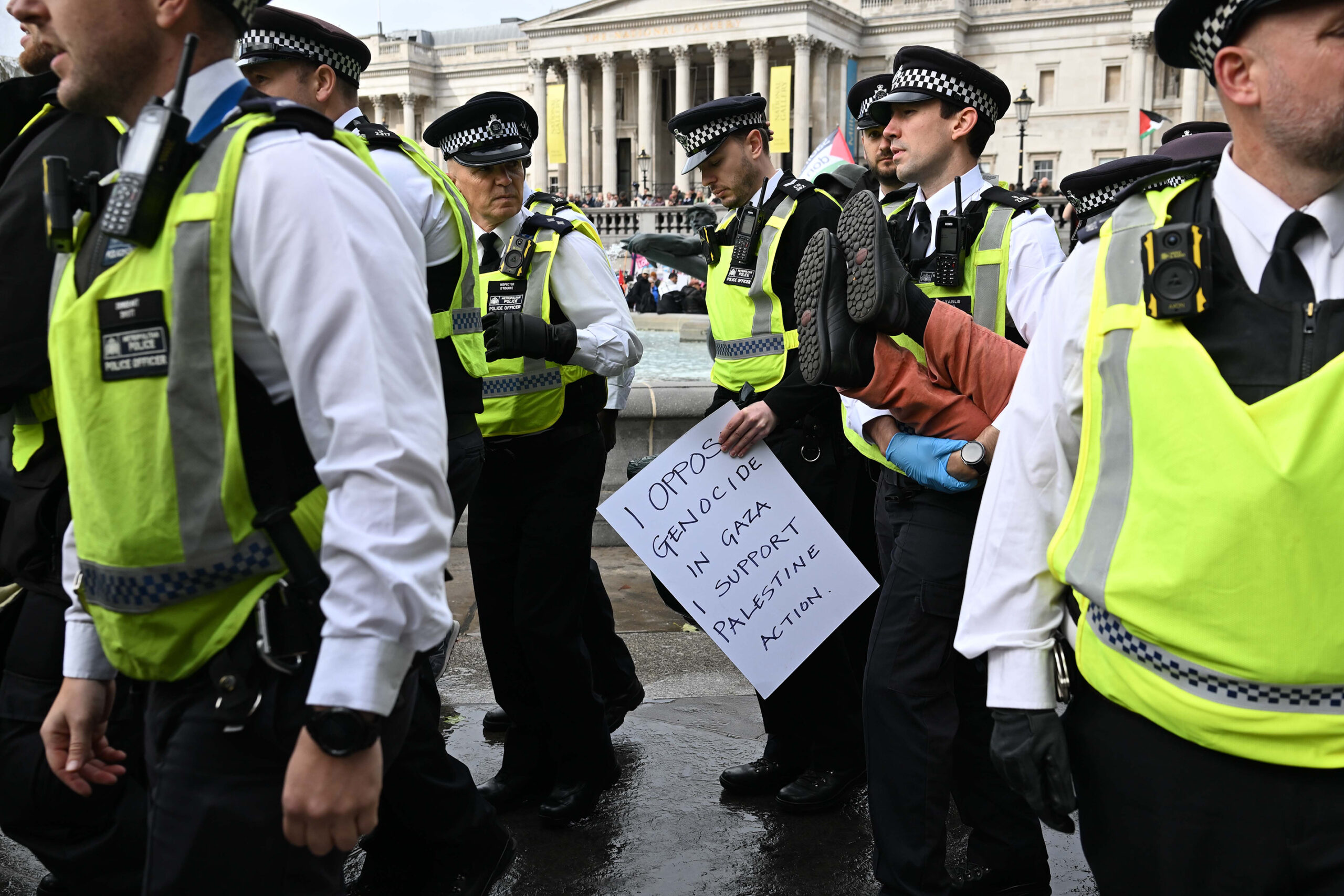
Elham Asaad Buaras
The UK government’s decision to proscribe the direct-action group Palestine Action has drawn sharp criticism from five UN human rights experts, who described the move as “not justified,” “unnecessary,” and reminiscent of authoritarian practices. The letter, addressed to the government in September and released publicly a month later, on November 12, comes just weeks before a judicial review of the ban at the Royal Courts of Justice from November 27–29.
The UN experts, including Ben Saul, Irene Khan, Gina Romero, Francesca Albanese, and George Katrougalos, warned that the proscription and subsequent mass arrests imposed “disproportionate restrictions” on fundamental rights, including freedom of expression, peaceful assembly, and association. “Mere property damage is not sufficient to constitute terrorism according to international standards,” they wrote, noting that the UK’s approach places it among international outliers.
Internal government documents, obtained by the Guardian, show that ministers were warned before the ban that proscription could increase Palestine Action’s visibility and support. A March briefing paper from the Home Office and Ministry of Housing, Communities and Local Government cautioned that banning the small, single-issue group could inadvertently heighten Muslim-Jewish tensions and be perceived as bias in favour of Israel.
Huda Ammori, co-founder of Palestine Action, said the warnings had proved accurate: “Awareness of the issues and popularity of the group have grown exponentially. The ban has backfired.”
A three-year inquiry by the Independent Commission on UK Counter-Terrorism Law, Policy and Practice, led by former judge Sir Declan Morgan KC PC, found the country’s definition of terrorism risks “uncertainty and overreach.” The review recommended that property damage should only fall under terrorism laws if it poses “serious risk to life, national security, or public safety, or involves arson, explosives, or firearms,” and that proscription orders should expire after five years unless renewed.

The Defend Our Juries/Palestine Action Protest in London on the September 6, 2025. (Credit: Indigo Nolan/Flickr Commons)
Palestine Action became the first organization in the UK to be banned primarily for property damage, following a June 2025 incident in which activists spray-painted military aircraft at RAF Brize Norton. The UN experts had warned at the time that such measures “set a dangerous precedent,” emphasizing that terrorism designations should be reserved for groups committing serious atrocities or armed conflict, not property-damage protest movements.
The review also found weak parliamentary oversight, noting that the Home Office relied on undisclosed information to justify the ban. More than 2,000 arrests have been made for proscription-related offenses, with some protesters warned they could be arrested for simply carrying signs referencing Gaza.
Huda Ammori has been granted permission by the High Court to challenge the proscription, with the court stating it was “reasonably arguable” that the ban constitutes a “disproportionate interference with the rights of freedom of expression and freedom of assembly.”
Defend Our Juries, an advocacy group, condemned the ban as an attack on civil liberties. A spokesperson said, “By weaponising the counter-terror regime against a domestic direct-action group, the government has launched a severe attack on the rights and freedoms of the British public, in order to protect the Israeli weapons industry.”
Six Palestine Action members are on an open-ended hunger strike, demanding de-proscription and immediate release on bail, with some facing up to two years on remand—far exceeding the usual six-month pre-trial custody limit.
“The UK’s decisions to proscribe organizations often influence similar actions by other states and international bodies,” the independent review noted. “The gravity of these consequences demands transparent and meticulous scrutiny of both the proscription and de-proscription processes.”
Read the full UN letter to the UK government: View the letter (PDF)
Feature photo: London, UK – October 4, 2025: Police detain demonstrators at Trafalgar Square during a protest urging the government to lift its ban on the activist group Palestine Action. The event was organized by Defend Our Juries, which said over 1,500 people had pledged to attend. (Credit: Raşid Necati Aslım/AA)